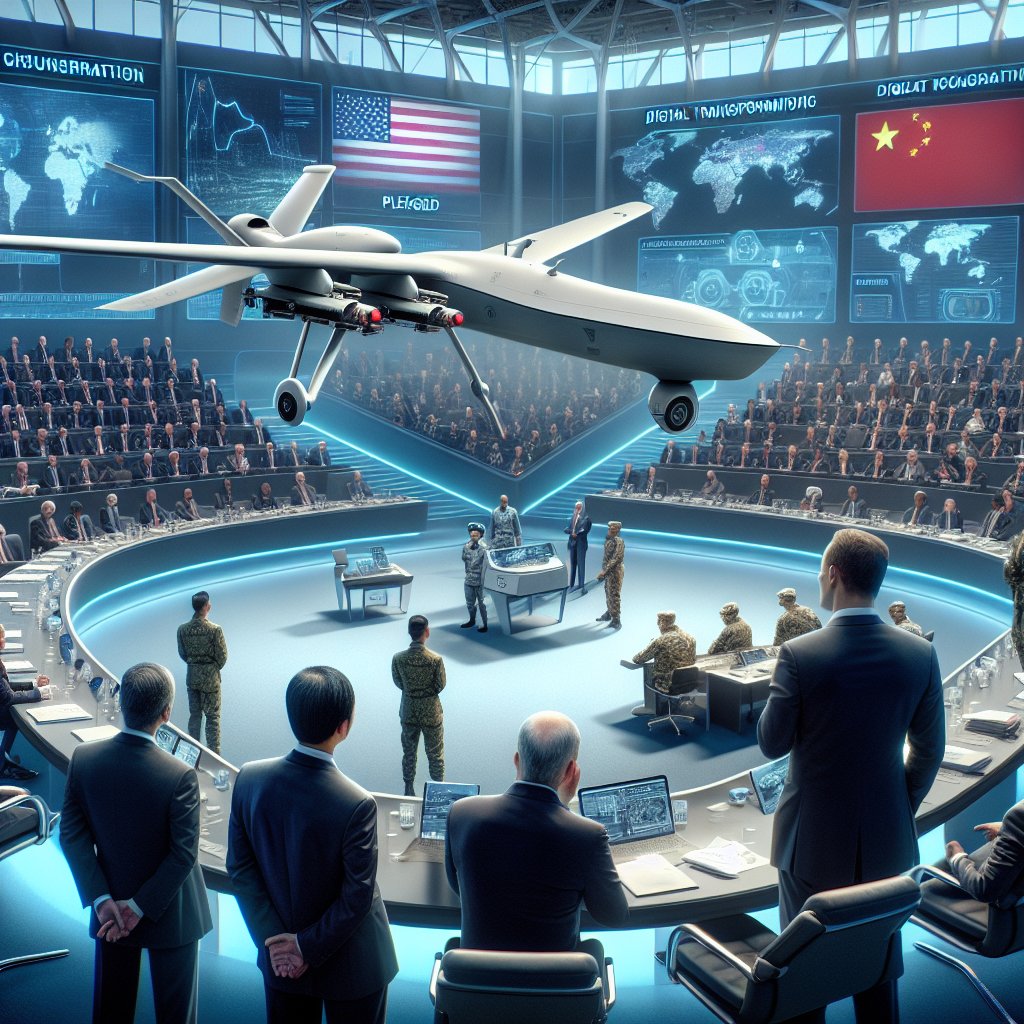Image created by AI
Shifting Alliances and Technological Thresholds: Ukraine and the Global Defense Landscape
In the shadow of conflict that has reshaped the contours of modern warfare, Ukraine’s diplomatic efforts continued to garner attention at the Munich Security Conference with Foreign Minister Dmytro Kuleba’s meeting with his Chinese counterpart, Wang Yi. Their discussion, birthed by necessity against the backdrop of Russia’s persistent aggression, charted a course aimed at reinforcing ties and pursuing a resolution to the war that has beset Ukraine.
On the stage of international security, advances in military technology, particularly drone warfare, have entered the limelight. The efficacy of these relatively low-cost drones was underscored as a strategic countermeasure that has enabled Kyiv to retaliate effectively, with their reach extending deep into Russian territory. Though their deployment has proven beneficial for Ukraine, experts and officials in Munich cautioned about the associated escalatory risks and challenges in airspace control that this technology presents.
Innovation remains central to Ukraine’s defense narrative, with Digital Transformation Minister Mykhailo Fedorov demonstrating the impacts of drone technologies on maintaining vital sea corridors for grain shipments. The success stories echoed across Munich's halls tilt not only the regional power balance but also beacon the international community towards the potential of unmanned systems.
Amid the nexus of technological advancement and strategic posturing, funding for defense has come under the European spotlight. Estonia’s Prime Minister Kaja Kallas advocated for eurobonds issuance to strengthen the EU’s defense capabilities – a proposal aligning with French and EU leadership but likely to find resistance among the more fiscally conservative member states.
The defense discourse interwove with geopolitical urging, as German Defence Minister Boris Pistorius called upon US lawmakers to expedite military aid for Ukraine. Beyond strategic necessities, Pistorius alluded to the economic implications for American defense businesses, underscoring a symbiosis between transatlantic security and commerce.
Spearheading access to weaponry, Ukraine's allies, including the United Kingdom, have pledged actionable support in the form of sophisticated AI-enabled drones. In counterpoint to Ukrainian defenses, Russia’s reliance on Iranian Shahed drones punctuates the dichotomy of resourcefulness versus resource abundance in this modern conflict.
Interestingly, the conference’s “Innovation Night” shone a light on a 3D-printed drone interceptor created by Tytan Technologies, potent against lower-end unmanned threats. It evidences a disruption in defense economics as high-cost anti-air systems now intersect with accessible countermeasures.
Artificial Intelligence, another jewel in the modern military crown, balanced between strategic advantage and ethical quagmires at the Munich conference. Google’s commitment to lever AI for robust cyber-defense comes amid rising calls for vigilance against its malignant use in spreading disinformation or augmenting cyber threats.
Yet, it’s not just the battlefields and cyber realms that echo with discourse from Munich. Diplomacy, as much as weaponry, acts as a pivot towards potential peace or prolonged confrontation. Kuleba’s exchange with Wang Yi signals a subtle shift in global stances, as China articulates a stance of peace promotion, though abstaining from lethal weapon sales.
Kuleba’s efforts are set against the more extensive silhouette of Ukraine’s call for a high-level peace summit, tentatively seeking to stanch the bloodshed on European soil. As the world leaders departed Munich, the measure of the conference's success will not only be in its declarations but in the tangible shifts in policy, alliances, and responses to the imperatives detailed within its meetings.










